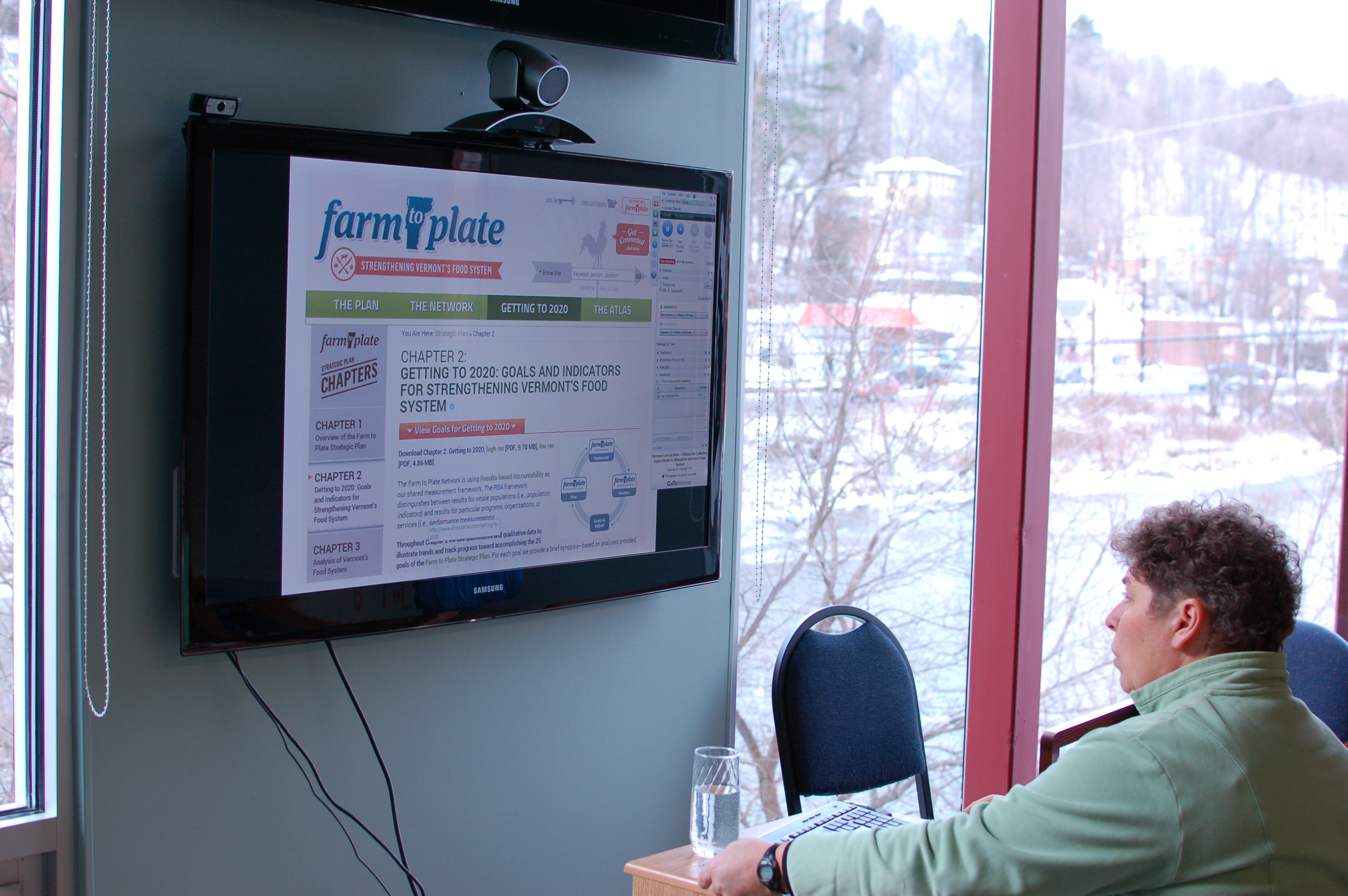Ended soon
 Vermont Sustainable Jobs Fund Executive Director Ellen Kahler recently visited ISC HQ to present a webinar about the acclaimed Vermont Farm to Plate (F2P) Network’s use of Collective Impact principles to generate thousands of sustainable jobs and millions in revenue that will stay in Vermont.
Vermont Sustainable Jobs Fund Executive Director Ellen Kahler recently visited ISC HQ to present a webinar about the acclaimed Vermont Farm to Plate (F2P) Network’s use of Collective Impact principles to generate thousands of sustainable jobs and millions in revenue that will stay in Vermont.
Her audience was the Western Adaptation Alliance (WAA), and their interest went beyond food systems. They were interested in using the F2P’s lessons of collective impact to strengthen their own network and in turn further the intermountain West’s ability to adapt to climate change issues like the severe drought that has stricken the western region of the United States.
Networks like F2P or the WAA help affect real change across complex systems with diverse inputs and players (e.g. an economy, a sector or a climate) – collective impact is an approach that allows these networks to maximize their potential and their reach. This type of multiplier effect that networks bring is becoming more critical as climate change related problems increase, and budgets tighten.
According to John Kania and Mark Kramer of FSG, the key conditions to achieving collective impact are:
- Common Agenda: Participants have a shared vision for change, common understanding of the problem and a joint approach to solutions.
- Shared Measurement: Data and results are collected consistently to ensure alignment and promote accountability across participants.
- Mutually Reinforcing Activities: Participant activities are complementary and coordinated through a plan of action.
- Continuous Communication: There is consistent and open communication to build trust, assure mutual objectives and create common motivation.
- Backbone Support: The network is supported and managed by staff of one or more organizations.
 ISC’s Debra Perry recently wrote a case study on the Vermont F2P Network (download at right), outlining the specific steps the State of Vermont, the Vermont Sustainable Jobs Fund and many collaborators took to create those conditions that are ideal for maximizing the impact of a network. Today, F2P is a thriving network and a model for collective impact.
ISC’s Debra Perry recently wrote a case study on the Vermont F2P Network (download at right), outlining the specific steps the State of Vermont, the Vermont Sustainable Jobs Fund and many collaborators took to create those conditions that are ideal for maximizing the impact of a network. Today, F2P is a thriving network and a model for collective impact.
In reviewing the case study, it comes clear that a backbone support person – a network coordinator – is a critical part of a network’s success, and is a component often overlooked as networks are developed. Not all organizations are suited to the role, and not all network members believe they have to be “coordinated.” But, as you can read in the case study, and as we’ve seen here in our work at ISC, network-building takes dedicated management. It’s a role we often play in supporting the systems changes we need to make as we work to shift communities toward greater sustainability.
Nicole Denering is a Program Officer for ISC’s Urban Program. She was formerly a Sustainability Aide for the City of Flagstaff, AZ.
